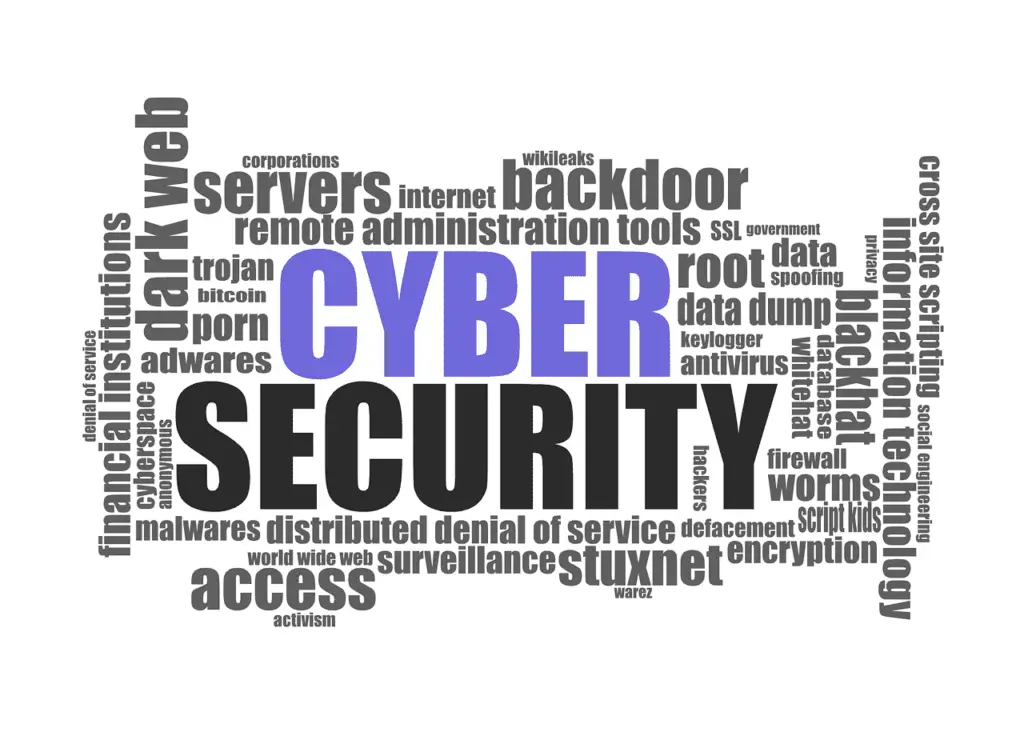Cybersecurity is the practice of protecting computer systems, networks, and data from digital attacks, unauthorized access, and damage. With the rapid advancement of technology and the increasing reliance on digital infrastructure, cybersecurity has become a critical component for individuals, businesses, and governments alike.
At its core, cybersecurity aims to ensure three main principles: confidentiality, integrity, and availability (often referred to as the CIA triad). Confidentiality involves safeguarding sensitive information from unauthorized access. Integrity ensures that data remains accurate and unaltered unless authorized. Availability guarantees that information and resources are accessible to authorized users when needed.
Qualification Required for Cybersecurity:
A bachelor’s degree in cybersecurity, computer science, information technology, or a related field is often preferred. Some roles, especially those involving advanced security architecture or management, may require a master’s degree.
Many universities offer specialized programs in cybersecurity. Relevant coursework includes network security, ethical hacking, cryptography, and risk management, which provide foundational knowledge crucial for cybersecurity roles.

Important of Soft Skills for Cybersecurity:
Soft skills are essential in cybersecurity roles. Critical thinking, problem-solving abilities, attention to detail, and effective communication are crucial for analyzing threats and collaborating with teams.
Overall, the qualifications for a successful career in cybersecurity combine formal education, recognized certifications, practical experience, and the development of soft skills, creating a well-rounded profile capable of tackling the challenges of this ever-evolving field.
How to Improve your skills in Cybersecurity:
Certifications are vital in demonstrating your expertise and commitment to the field. Some widely recognized certifications include:
- CompTIA Security+: An entry-level certification that covers essential cybersecurity concepts, making it suitable for beginners.
- Certified Information Systems Security Professional (CISSP): A more advanced certification aimed at experienced professionals, covering a wide range of security topics, including risk management and security architecture.
- Certified Ethical Hacker (CEH): Focused on penetration testing and ethical hacking techniques, this certification is ideal for those looking to understand the mindset of cybercriminals.
- Certified Information Security Manager (CISM): This certification is targeted at those in managerial roles, emphasizing risk management and governance.
- Cisco Certified CyberOps Associate: This certification focuses on security operations skills, including monitoring, detection, and response to security incidents.

How to clear Cybersecurity Exam in 2024?
To successfully clear a cybersecurity exam, follow these steps:
- Understand the Exam Format: Familiarize yourself with the structure, types of questions (multiple choice, essays, practical), and time limits.
- Study the Curriculum: Review the exam syllabus and focus on key topics, such as network security, cryptography, and incident response.
- Use Quality Study Materials: Leverage textbooks, online courses, and resources recommended by certification bodies. Platforms like Cybrary or Coursera offer valuable courses.
- Practice with Mock Exams: Taking practice tests helps you gauge your knowledge, improve time management, and become comfortable with the question format.
- Join Study Groups: Collaborating with peers can provide different perspectives, clarify concepts, and keep you motivated.
- Hands-On Experience: Engage in labs or simulations to apply theoretical knowledge practically, reinforcing your understanding of real-world scenarios.
- Stay Updated: Cybersecurity is a rapidly evolving field. Keep up with the latest trends and threats through blogs, webinars, and news sources.
- Create a Study Schedule: Allocate regular study times leading up to the exam to ensure consistent progress without cramming.
- Focus on Weak Areas: Identify topics where you struggle and devote extra time to mastering them.
- Stay Calm and Confident: On exam day, read questions carefully, manage your time wisely, and approach each question with confidence.
Earning Potential of Cybersecurity:
The earning potential in cybersecurity is substantial and continues to grow due to increasing demand for skilled professionals
The cybersecurity field is projected to grow rapidly, with many organizations facing an acute shortage of skilled professionals. According to various industry reports, the demand for cybersecurity experts is expected to continue rising, which will likely lead to increased salaries and opportunities.
Role & Responsibilities of Cybersecurity:
The roles and responsibilities of cybersecurity professionals vary based on their specific job titles and the organization’s needs, but they generally encompass several core areas. Here’s an overview of common roles and their associated responsibilities:
1. Security Analyst
- Monitoring Systems: Continuously monitor networks and systems for security breaches.
- Incident Response: Investigate security incidents and develop response plans.
- Vulnerability Assessment: Conduct regular security assessments and penetration tests to identify weaknesses.
2. Security Engineer
- System Design: Design and implement secure network architectures and security protocols.
- Configuration Management: Configure and maintain security tools like firewalls, intrusion detection systems, and anti-virus software.
- Security Policies: Develop and enforce security policies and procedures to safeguard systems.
3. Penetration Tester (Ethical Hacker)
- Simulated Attacks: Conduct simulated cyberattacks to test the effectiveness of security measures.
- Reporting: Document findings and provide recommendations to improve security posture.
- Exploit Development: Create and use exploits to understand vulnerabilities better.
4. Security Architect
- Framework Development: Develop security frameworks and guidelines for secure software and infrastructure design.
- Risk Assessment: Analyze and assess security risks to the organization’s assets.
- Collaboration: Work with IT and development teams to integrate security into systems from the ground up.
5. Incident Response Manager
- Plan Development: Develop and maintain incident response plans for addressing security breaches.
- Team Coordination: Lead incident response teams during security incidents.
- Post-Incident Analysis: Conduct post-mortem analyses to learn from security incidents and improve future responses.
6. Chief Information Security Officer (CISO)
- Strategic Leadership: Develop and implement the organization’s overall cybersecurity strategy.
- Policy Oversight: Ensure compliance with regulatory requirements and internal policies.
- Budget Management: Manage the cybersecurity budget and resources effectively.
7. Security Compliance Officer
- Regulatory Compliance: Ensure the organization meets industry standards and regulatory requirements (e.g., GDPR, HIPAA).
- Audit Preparation: Prepare for and conduct security audits.
- Training: Educate employees on compliance requirements and security best practices.
8. Threat Intelligence Analyst
- Threat Analysis: Research and analyze emerging cyber threats and vulnerabilities.
- Reporting: Provide actionable intelligence to the security team and management.
- Collaboration: Work with law enforcement and other organizations to share threat information.
General Responsibilities Across Roles
- User Training: Educate employees on cybersecurity awareness and best practices to reduce human error.
- Documentation: Maintain accurate documentation of security incidents, policies, and procedures.
- Continuous Learning: Stay updated on the latest cybersecurity trends, threats, and technologies.
